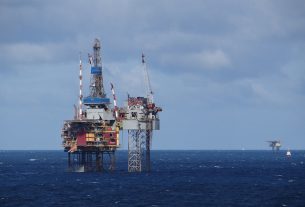Bin strikes in Scotland have started in 13 more local authorities after councils and unions failed to reach a pay agreement.
The “international embarrassment” that is the bin strike in the middle of Edinburgh’s famed festival is only half way through its period of industrial action, and will continue until August 30.
Scotland’s governing SNP has blamed the “unofficial coalition” of unionist parties running Edinburgh council – Labour led, supported by Conservatives and Lib Dems – for the problems in the capital city.
Edinburgh’s bin strike started on August 18 and rubbish has been piling on streets, attracting rats, foxes, seagulls and other vermin. Scotland’s culture secretary Angus Roberston called it a “disgusting blight on the city for its residents and tourists, just as thousands are here for the festivals”, and blamed council leaders for the bin strike.
Roberston – the SNP MSP for Edinburgh central – called the initial 3.5% pay offer to workers a “slap in the face”, especially as the council was given funding to offer bin staff 5%.
“A week late, and an unnecessary week of litter piling up, the council have finally caved, offering the minimum five per cent rise workers deserve,” Roberston wrote in the Edinburgh Evening News.
John Swinney , Scotland’s deputy first minister, said £140 million of new money has been assigned to the local government pay settlement and that “it would be helpful if local authorities had made the offer of 5% much earlier than they did, when I gave them the money.
“But Labour and Conservative leaders in Cosla [the body representing local government which collectively spend £19 billion per year] stalled on giving that offer to trade unions,” Swinney told BBC Scotland.
However, on Wednesday bin strikes started in 13 other local councils in Scotland, including the SNP run Glasgow, Aberdeen and Dundee. Strikes will begin in six more local authorities on Friday.
Under the current offer from Cosla, the lowest paid council workers would earn the new Scottish Government Living Wage which is £10.50 per hour. Unite said that equates to between £900 and £1,250 for workers when the UK government is offering a flat rate pay offer worth £1,925 to council workers.
Unison Scotland, which represents some of the bin workers said it is a “long way” from agreement. Johanna Baxter, the union’s head of local government said: “Cosla negotiated within the cost envelope that leaders mandated them but that simply isn’t enough and goes nowhere near matching the pay offer provided to council workers in England, Wales and Northern Ireland.
Baxter added: “The only thing that both parties could agree on is that we need the urgent intervention from the deputy first minister to put additional funding in place and both will be writing to the deputy first minister to that effect today.”
Scotland spends £2,000 more per person
Figures released by the Scottish government show public spending per person last year was an average £1,963 higher in Scotland than in other parts of the UK.
The Telegraph reports that “every Scot received an average” £2,000 more from the taxpayer and contributed £221 less from tax generated – although Scotland’s revenues shot up because of North Sea gas and oil.
Scotland’s public spending deficit in 2021 was 12.3% of GDP – twice the UK’s overall 6.1% and more than any other European country.
Bus and bin strikes in London
Bin collection staff in Newham, east London have given notice of their one week strike from August 27 to September 3. Around 130 members of the Unite trade union – including drivers, sweepers and loaders – will walk out after their demands for a 10% pay rise were rejected.
Newham Council said it has offered an increase between 7.8% and 9.9%. Unite said its members “did not feel recognised” and that 99% of those voting in the ballot (81% turnout) backed strike action.
London bus drivers will go on strike this bank holiday weekend, Unite has confirmed.
More than 1,000 drivers will take part in the strike over a 3.6% pay offer they say is a “real terms pay cut” given the real rate of inflation is more than 12%.




